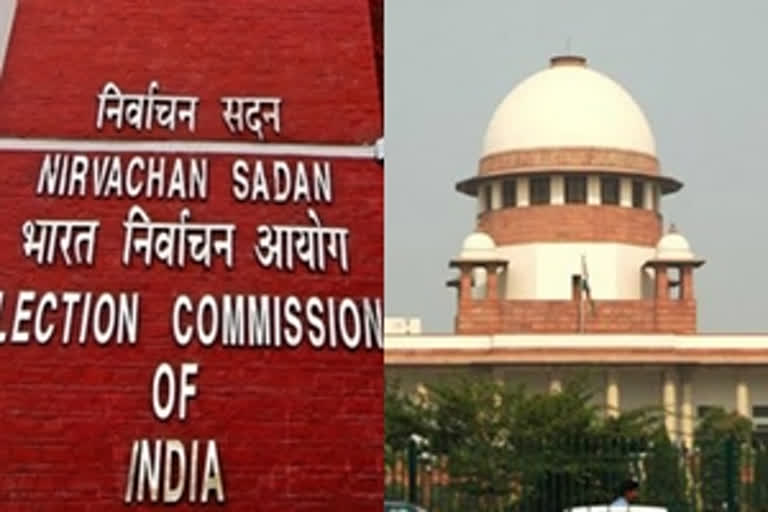New Delhi: The Election Commission has told the Supreme Court that it has received status of filing of electoral bonds from various political parties, including the BJP and the Congress, in a sealed cover.
The EC has filed an affidavit in the apex court in pursuance to the top court's April 12 last year direction asking the political parties to furnish all details of funds received through electoral bonds to the the poll panel in a sealed cover.
"Pursuant to the same (order), the Election Commission of India has received sealed covers from various political parties (national, state and registered and unrecognised parties)....," the EC said in its affidavit.
The affidavit contains a list of 105 political parties, including national, state unit of national parties, state parties, registered unrecognised parties, who have filed the details regarding electoral bonds in a sealed cover with the EC.
"It is further submitted that insofar as the issue of submissions of an annual audited report by the political parties to the Election Commission of India is concerned, a list showing the current status of submission of audited annual accounts of the political parties is being annexed herewith," the affidavit said.
The EC submitted the affidavit in the pleas filed by an NGO and others seeking a stay on the Centre's Electoral Bond Scheme, 2018.
Read: People who are opposing electoral bonds believe in black money: Union Minister Piyush Goyal
The poll panel made it clear that being a constitutional authority, it does not propose to "take any contentious issues or to join any submission on merits as these are matters between contending parties".
The apex court had in April last year declined to stay the Centre's Electoral Bond Scheme, 2018, and had made it clear that it will accord in-depth hearing on the pleas as the Centre and the EC have raised "weighty issues" having "tremendous bearing on the sanctity of the electoral process in the country".
The court, which was to decide the plea of NGO 'Association of Democratic Reforms' seeking that the issuance of electoral bonds have stayed or the names of donors are made public, had said the plea required detailed hearing in view of weighty arguments and the counter.
As per the scheme, electoral bonds may be purchased by a person, who is a citizen of India or an entity incorporated or established in India.
A person being an individual can buy electoral bonds, either singly or jointly with other individuals.
Only parties registered under Section 29A of the Representation of the People Act, 1951, and which secured not less than 1 per cent of votes polled in the last general election to the House of the People or the Legislative Assembly of the State, will be eligible to receive electoral bonds.
As per the notification, electoral bonds will be encashed by an eligible political party only through a bank account with an authorised bank.
The Centre and the EC had taken contrary stands in the court over political funding, with the government wanting to maintain the anonymity of donors of bonds and the poll panel batting for revealing names of donors for transparency.
(PTI)
Also Read: Country expresses gratitude to EC for making electoral process vibrant, participative: PM



